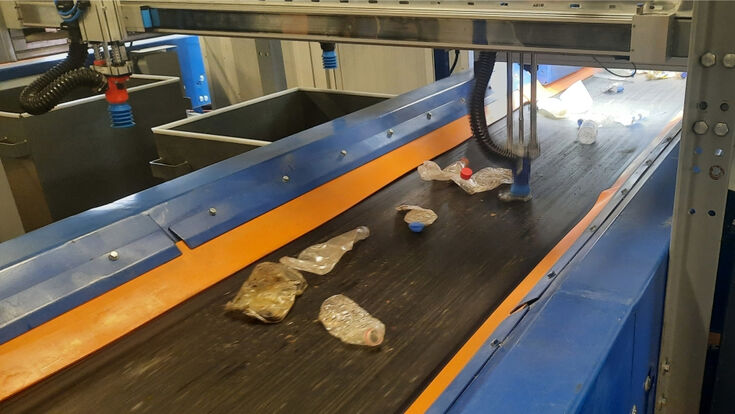Discovering the Value of Reclaim Waste in Sustainable Waste Monitoring Campaigns
In the world of lasting waste monitoring, the principle of redeeming waste emerges as an important component that requires focus and consideration. As we navigate the intricacies of contemporary waste disposal practices, the value of recovering waste unveils a nuanced approach to mitigating ecological effect and fostering an extra sustainable future. By analyzing the intricate interaction between waste recovery and sustainable waste management efforts, we begin to untangle a narrative that expands beyond conventional garbage disposal methods. Via a lens that prioritizes source effectiveness and environmental conservation, recovering waste offers an engaging avenue for attending to pressing ecological challenges while paving the means for ingenious solutions in the world of waste management.
Importance of Reclaiming Waste
Why is recovering waste vital in sustainable waste administration methods? Reclaiming waste plays an essential role in sustainable waste management by lowering the quantity of waste sent to garbage dumps, conserving natural sources, and lessening environmental impact.
Furthermore, redeeming waste cultivates a round economic climate where materials are recycled and reused constantly, promoting an extra efficient and lasting use sources. It likewise adds to the production of eco-friendly tasks and economic development in the recycling and waste monitoring market. By integrating waste reclamation techniques right into waste management areas, companies and methods can relocate towards an extra sustainable future, where waste is checked out not as a burden however as a beneficial resource.
Benefits for the Environment
In the world of sustainable waste monitoring, the practice of recovering waste not only preserves natural sources and decreases waste sent to landfills however likewise produces significant advantages for the setting. By recovering waste products, such as steels, glass, plastics, and natural issue, the environmental influence of source extraction and manufacturing is minimized (Reclaim Waste Melbourne). This leads to lowered power intake, reduced greenhouse gas exhausts, and lower levels of air and water air pollution linked with extracting resources
Moreover, recovering waste assists in the preservation of biodiversity and all-natural environments. It minimizes the requirement for land fill room, thereby minimizing land destruction and environment devastation. In addition, the process of redeeming waste usually entails recycling and repurposing materials, which consequently decreases the demand for brand-new products and the associated energy and resources needed for their manufacturing.
Payment to Circular Economic Climate
Playing a critical role in fostering sustainability and resource performance, redeeming waste makes a considerable contribution to the circular economic climate. By reestablishing disposed of products back right into the manufacturing cycle, reclaiming waste reduces the demand for virgin sources, thus lowering the overall ecological influence of resource removal and consumption. This procedure lines up with the concepts of the circular economic climate, which emphasizes making best use of the worth and energy of resources via closed-loop systems.
As an outcome, redeeming waste assists to produce a more lasting and resistant economy that is less dependent on scarce resources and vulnerable to interruptions in the supply chain. Inevitably, by integrating waste recovery practices into waste monitoring organizations, communities and efforts can actively contribute to building a much more circular and regenerative economic climate.
Reducing Land Fill Waste

Additionally, carrying out waste-to-energy innovations can help in lowering the quantity of waste sent out to land fills while also producing power. Encouraging the usage of recyclable items, such as shopping bags and water bottles, can considerably decrease the amount of waste that ultimately winds up in land fills. Education and awareness campaigns on proper waste disposal and the significance of lowering, reusing, and recycling can additionally play an important role in decreasing landfill waste. By prioritizing the decrease of landfill waste, lasting waste administration methods can be boosted, bring about a much healthier environment and economic situation.

Future Ramifications
Thinking about the quick innovations in innovation and developing ecological challenges, the future effects of sustainable waste management are positioned to change existing practices. The fostering of innovative technologies such as man-made intelligence, Web of Points (IoT), and blockchain can considerably enhance waste surveillance, arranging, and reusing processes. These innovations enable real-time monitoring of waste streams, identification of recyclable products, and boosted performance in resource allotment.
Moreover, the change towards a circular economy version, where sources are recycled, reused, or upcycled, will certainly end up being increasingly widespread. This change not only decreases the dependence on virgin products however also reduces waste generation, leading to a much more sustainable and eco-friendly waste administration approach.
Moreover, the assimilation of sustainable waste monitoring techniques right into wider sustainability schedules is expected to get grip. Liquid waste removal. Organizations and federal governments worldwide are acknowledging the importance of waste reduction and recycling in combating environment modification and advertising a round economic climate. Therefore, policies and policies supporting lasting waste administration initiatives are likely to come to be a lot more rigorous, driving markets towards even more environment-friendly techniques
Final Thought
In verdict, the significance of reclaiming waste in sustainable waste management efforts can not be overemphasized. i loved this By recovering waste, find out here now we can decrease ecological influence, contribute to a round economic situation, and lessen land fill waste.
By taking a look at the elaborate interaction in between waste reclamation and sustainable waste administration initiatives, we begin to decipher a narrative that expands past standard waste disposal approaches. Reclaiming waste plays a vital role in sustainable waste administration by reducing the amount of waste sent to land fills, conserving natural resources, and decreasing ecological effect. By incorporating waste improvement methods right into waste monitoring communities, businesses and methods can relocate in the direction of a more sustainable future, where waste is viewed not as a problem however as a beneficial source.
